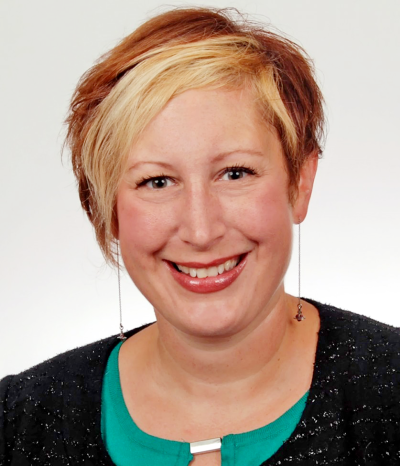Affiliate Spotlight: Sarah Schoppe-Sullivan

Sarah Schoppe-Sullivan is a professor in developmental psychology. She received her BA in psychology from Northwestern University, and her MA and PhD in developmental psychology from the University of Illinois at Urbana-Champaign.
Dr. Schoppe-Sullivan’s research focuses on the family as the primary context for young children’s social-emotional development, with three central areas of interest: (1) coparenting relationships and the implications of the quality of coparenting relationships for child and family functioning; (2) the roles of fathers in families, particularly the roles of fathers within coparenting relationships; and (3) the effects of children’s characteristics and behavior on family relationships.
Dr. Schoppe-Sullivan shared her answers with the Institute for Population Research (IPR) to the following questions about her career, her research interests, and the impact of her work.
Q. How long have you been at Ohio State, and how long have you been connected to IPR?
I have been at Ohio State since 2003 and have been connected with IPR for about 20 years.
Q. Describe your main research interests in a few sentences.
My research focuses on families as a primary context for children’s social and emotional development. In particular, I study parenting, coparenting, father-child relations, and parental gatekeeping. My research features longitudinal designs and direct observations of family interactions and parent/child behaviors. My work is primarily quantitative, but recently I have incorporated qualitative approaches as well.
Q. Which of your current projects are you most excited about?
I am really excited about the follow-up on families and children in the New Parents Project that our lab is conducting under the leadership of my graduate student, Kübra Aytaç-DiCarlo. The New Parents Project was begun in 2008 by recruiting a sample of couples expecting their first child, and was supported in part by IPR seed grant funding. Now the first-born children in these families are adolescents. We’ve never attempted such a long-term study before!
Q. What drew you to IPR, and how do you benefit from your involvement with IPR?
A former colleague, Claire Kamp Dush (now at the University of Minnesota), connected me to IPR. I was drawn to IPR because of its interdisciplinary nature, which appeals to me given that my research incorporates frameworks and insights from psychology, human development, sociology, and social work. I enjoy the IPR speaker series, and my research has benefited from several IPR seed grants over the years.
Q. What has been the biggest impact of your work, or what do you hope for future impacts for your work?
I think the biggest impact of my work has been on increasing knowledge about and attention to the importance of father-child relationships to children’s development. I was invited to address the U.S. Surgeon General about the importance of fathers and the roles that mothers play in father-child relationships. I also think the impact of the New Parents Project (NPP) on knowledge about father-child relationships, coparenting relationships, and children’s development cannot be overstated. This project alone has generated 50 peer-reviewed publications and book chapters, and I expect that additional papers and insights will continue to be generated for years to come. The NPP is a unique asset to Ohio State. In addition to generating knowledge about families and children it has provided opportunities for hundreds of Ohio State students to gain research experience and skills critical to their educational and career development.
Q. How does your personal or professional background shape the topics you are interested in or the way you do research?
I grew up in a family with challenging dynamics. I became curious about how my experiences in my family of origin may have shaped my development and that of my brother.
Q. What motivates you to do what you do?
I enjoy the thrill of discovery.
Q. What is the research finding you’re most proud of?
In a recent paper published in Sex Roles, and led by my graduate student, Reed Donithen, we found that when new fathers took longer leaves from work after the birth of their first child, mothers’ beliefs and behaviors towards fathers’ involvement in parenting became less critical and more progressive. This is an exciting finding because it shifts blame away from mothers as “gatekeepers” to fathers’ involvement in parenting and suggests that fathers’ own motivation for involvement is key. It also has implications for parental leave policies.
Q. Do you do any public-facing communication or dissemination of your work? Why do you think it’s important for you?
I am the president of the board of the Council on Contemporary Families (CCF), a non-profit, non-partisan organization dedicated to providing the press and public with the latest research and best-practice findings about American families. I lead the editorial board of CCF, which means I guide what we publish in the form of written symposia, brief reports, and fact sheets. Translating science for policymakers and the public is critical. If no one knows about our work it’s impossible for it to make an impact outside the ivory tower.
